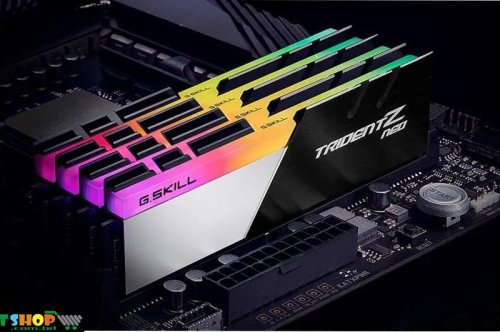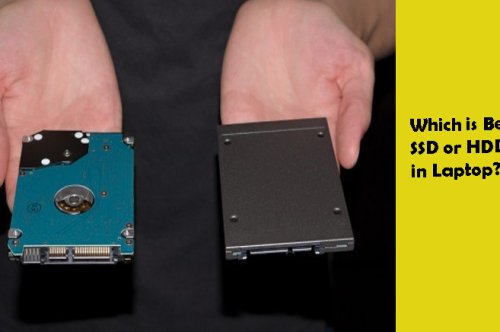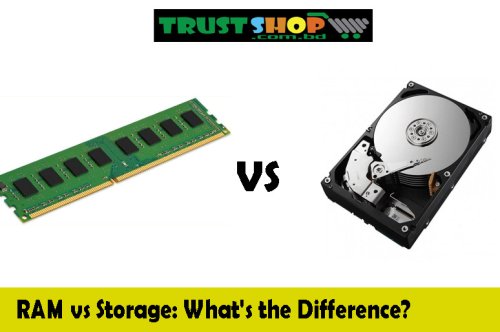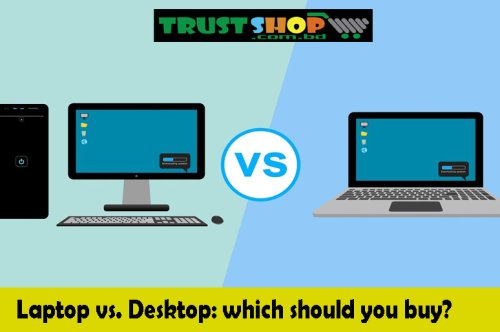how to choose best cctv camera for home

CCTV Camera System or Closed-Circuit Television Camera System has been around for decades since its invention in the 1940s. CCTV Camera System is a type of surveillance system that allows monitoring and recording of activities inside enclosed or secured areas.
CCTV Camera System comprises cameras that capture video footage of an area or premises, transmission cables that carry the video signal from cameras to the central monitoring station, and a monitor or recording device to display or record the footage.
The CCTV Camera System can consist of wired or wireless cameras and may employ a central monitoring system using a computer or smartphone application, which allows the user to view the footage from different locations.
Types of cctv camera system
Over the years, the use of CCTV cameras has been on the rise due to their exceptional ability to provide surveillance footage. They are installed in various locations such as homes, offices, shopping malls, and other public places. CCTV cameras come in different shapes and sizes, each with its unique features and functions. In this article, we will take a detailed look at the types of CCTV camera systems available in the market.
- Wired CCTV Cameras: These are the traditional types of CCTV cameras that have been in existence for a long time. As the name implies, wired CCTV cameras use cables to transmit data to a recording device. They are reliable and offer high-quality footage. However, their installation process is complex, and they require professional assistance.
- Dome Cameras: Dome cameras are named so because of their dome-shaped housings. They are commonly used indoors and are discreet in appearance, making it challenging for individuals to discern their exact viewing angle. Dome cameras are used in various settings like retail stores, small businesses, and homes.
- Bullet Cameras: Bullet cameras are cylindrical and resemble rifle bullets. They are commonly used outdoors, given their weather-resistant casing and longer viewing range. They are an ideal choice for outdoor surveillance, as they have an enhanced field of view.
- PTZ Cameras: PTZ (Pan--Tilt--Zoom) cameras have a built-in motor used to move the lens up and down, side to side, or zoom in and out. These cameras can scan an area that needs monitoring actively. PTZ cameras are widely used in public places like stadiums, shopping malls, and other commercial buildings.
- Thermal Cameras: Thermal cameras use heat to detect motion and movement. They can detect even in a pitch-black environment. Thermal cameras are commonly used in areas with low-light situations where other cameras are ineffective.
- IP Cameras: IP (Internet Protocol) cameras are the latest in surveillance technology. They transmit data over the internet using IP protocol rather than being hardwired. With the ability to view images over the internet, these cameras cater to different needs. These are widely used in government and military installations, banks, and corporate offices.
- C-mount camera: One of the most popular types of CCTV cameras is the C-mount camera. These cameras are often used in settings where a wide-angle view is required, such as in large retail spaces or warehouses. C-mount cameras are versatile and can accommodate different lenses, allowing them to capture clear images at long distances.
- Day/Night camera: Another type of CCTV camera is the Day/Night camera. As the name suggests, these cameras are intended to function both during the day and at night. During the day, the camera captures color images while at night, it switches to black-and-white mode to capture clear images in the dark. Day/Night cameras are typically used in outdoor settings such as parking lots or building perimeters, where lighting conditions might vary.
Consider CCTV Recorder Features
When it comes to choosing a CCTV (Closed-Circuit Television) recorder, there are several important features to consider. These features play a crucial role in ensuring the effectiveness and functionality of your surveillance system. Here are some key aspects to keep in mind:
Camera Compatibility: Ensure that the CCTV recorder is compatible with the cameras you intend to use. It should support the video format and resolution of your cameras to ensure seamless integration.
Number of Channels: Determine the number of cameras you plan to connect to the recorder. Select a recorder with enough channels to accommodate your current needs as well as any potential future expansions.
Recording Resolution: Look for a recorder that supports high-definition (HD) or even ultra-high-definition (UHD) resolutions for capturing clear and detailed footage. The resolution should align with the capabilities of your cameras.
Storage Capacity: Consider the amount of storage space required for your surveillance footage. CCTV recorders typically utilize hard drives for storage, so ensure that the recorder has sufficient capacity or supports external storage options.
Compression Technology: Efficient compression technology, such as H.264 or H.265, helps optimize storage space without compromising video quality. Look for recorders that employ advanced compression algorithms to maximize storage efficiency.
Remote Access: Nowadays, remote access to surveillance systems is crucial. Choose a recorder that allows you to monitor and manage the system remotely through a smartphone, tablet, or computer. This feature enhances convenience and enables real-time monitoring from anywhere.
Backup Options: It's essential to have reliable backup options to safeguard your recorded footage. Look for recorders that support backup to external devices like USB drives or network-attached storage (NAS) devices. Cloud storage options can also be considered.
Motion Detection and Alerts: Consider recorders that offer motion detection capabilities. This feature can trigger recording and send alerts when motion is detected in specific areas, allowing you to focus on significant events and conserve storage space.
User-Friendly Interface: A user-friendly interface simplifies the setup and configuration process. Look for recorders that offer intuitive menus, easy navigation, and clear instructions to streamline the operation and management of your CCTV system.
Integration with Other Systems: If you plan to integrate your CCTV system with other security or automation systems, ensure that the recorder supports the necessary protocols or interfaces for seamless integration.
Scalability: If you anticipate expanding your surveillance system in the future, consider a recorder that offers scalability options. This allows you to add more cameras or upgrade storage capacity as your needs evolve.
Network Connectivity: For IP-based cameras, ensure that the recorder has built-in network connectivity options such as Ethernet ports or Wi-Fi capability. This enables easy integration into your existing network infrastructure.
By considering these features, you can select a CCTV recorder that best suits your surveillance requirements, enhances security, and provides peace of mind. It's important to assess your specific needs and budget before making a final decision.
List of Free Tips to Choose the Right Security Camera (CCTV) for home
Choosing the right security camera (CCTV) is essential to ensure optimal surveillance and meet your specific needs. Here is a list of free tips to help you make an informed decision when selecting a security camera.
Determine your Surveillance Needs: Assess your surveillance requirements and identify the areas you want to monitor. Consider factors such as the size of the area, lighting conditions (day/night), indoor or outdoor surveillance, and the level of detail needed.
Camera Type: Understand the different types of security cameras available, such as dome cameras, bullet cameras, PTZ (Pan-Tilt-Zoom) cameras, or specialized cameras like thermal cameras or license plate recognition cameras. Choose a camera type that suits your specific surveillance needs.
Resolution: Select a camera with a suitable resolution to capture clear and detailed footage. High-definition (HD) and ultra-high-definition (UHD) cameras offer superior image quality, allowing you to identify faces, objects, or license plates with greater clarity.
Low Light Performance: Consider the camera's low-light performance, especially if you require surveillance during nighttime or in poorly lit areas. Look for cameras with features like low-light sensitivity, infrared (IR) illuminators, or starlight technology to ensure clear images even in challenging lighting conditions.
Field of View: Determine the desired field of view for each camera. The field of view depends on the lens size and focal length. Wide-angle lenses cover larger areas, while narrow-angle lenses provide more focused views. Choose the appropriate lens based on your surveillance requirements.
Camera Placement: Identify the ideal locations for camera placement based on your surveillance goals. Consider factors such as the camera's mounting options, weatherproofing (for outdoor cameras), and whether the camera needs to be visible as a deterrent or discreetly hidden.
Connectivity and Power: Check the connectivity options and power requirements of the security camera. Determine whether the camera needs to be wired or if wireless options, such as Wi-Fi cameras or Power over Ethernet (PoE) cameras, are suitable for your setup.
Storage Options: Decide on the preferred storage method for your camera footage. Options include local storage on an NVR (Network Video Recorder) or DVR (Digital Video Recorder), or cloud-based storage. Consider the storage capacity required and the convenience of accessing and managing the recorded footage.
Video Analytics: Some advanced security cameras offer built-in video analytics capabilities. These features include motion detection, facial recognition, line crossing detection, and object tracking. Evaluate if such features are necessary for your surveillance needs.
Integration and Scalability: Consider the camera's compatibility with your existing security system or any future expansion plans. Ensure that the camera can integrate seamlessly with other devices or software, allowing you to create a comprehensive and scalable surveillance solution.
Budget: Determine your budget for the security camera system. While it's important to consider cost, prioritize quality and features that align with your requirements. Strike a balance between affordability and meeting your surveillance needs effectively.
Research and Reviews: Conduct thorough research on different camera brands, models, and customer reviews. Seek recommendations from trusted sources or consult with security professionals to gather insights and make an informed decision.
By following these tips, you can choose the right security camera (CCTV) that aligns with your surveillance goals, provides reliable performance, and enhances your overall security measures.
Factors To Choose The Right CCTV Camera For Your Home
Choosing the right CCTV camera for your home can be an overwhelming task, especially when the market offers an extensive range of options. When investing in a CCTV camera system, it's essential to consider various factors such as the area you intend to cover, the level of visual clarity you require, and whether you need audio input or other useful features or additions.
The area you intend to cover: The first factor to consider when choosing a CCTV camera system is the area you intend to cover. This will determine the number of cameras you need and the type. For indoor use, a compact-size camera with a wide-angle lens could do the trick, while an outdoor camera should be waterproof and built with infrared technology to capture images during the night.
Do you want to keep your cameras discreet: Another factor you will need to consider is whether you want to keep your cameras discreet. Hidden cameras can be bought in the form of clocks, pens, or other ordinary-looking household items. Alternatively, you could opt for visible cameras to act as a deterrent to any potential intruders who may be less likely to proceed with an unlawful act when they see surveillance equipment in place.
The visual clarity: The level of visual clarity required is another essential factor to consider. CCTV cameras are available in various resolutions from standard definition (SD) to ultra-high-definition (UHD). High resolutions can capture a more extensive range of the field under surveillance and display clearer images. However, higher-resolution cameras come at a higher cost.
Do you require audio input: Most CCTV cameras come with audio input capabilities. Audio input can come in handy when trying to identify visitors and communicate with them remotely. If you need audio input, it is recommended to purchase a camera with built-in speakers and a microphone to produce better quality sound.
Other Useful Features Or Additions: Lastly, you may want to consider other useful features or additions, such as motion detection, pan, tilt and zoom, and remote access. Some CCTV cameras come with motion detection capabilities, which can trigger an alert and record when motion is detected in the camera's field of view. Pan, tilt and zoom cameras give you a more comprehensive view of the field and offer more control over camera direction. With remote access-enabled cameras, you can view recordings on your smartphone or tablet.
What is the Need for CCTV Security System
The need for CCTV (Closed-Circuit Television) security systems has significantly increased in recent years due to several compelling reasons. These systems play a crucial role in enhancing security measures and providing a range of benefits for both residential and commercial settings. Here are some key reasons why CCTV security systems are essential:
Crime Deterrence: One of the primary purposes of CCTV systems is to deter criminal activities. The presence of visible cameras acts as a deterrent, making potential criminals think twice before committing a crime. Knowing that their actions are being recorded and can be used as evidence discourages theft, vandalism, and other illegal activities.
Surveillance and Monitoring: CCTV systems enable continuous surveillance and monitoring of areas that require heightened security. They provide a constant and vigilant eye on vulnerable areas, such as entrances, parking lots, and high-security zones, to detect suspicious activities or unauthorized access promptly.
Evidence Collection: In the unfortunate event of a crime or security breach, CCTV footage serves as valuable evidence for law enforcement agencies and the legal system. High-quality video recordings can provide crucial information about the perpetrators, their actions, and the sequence of events, aiding in investigations, prosecutions, and convictions.
Employee and Customer Safety: CCTV systems are essential for maintaining a safe environment for both employees and customers. They help prevent workplace violence, monitor employee behavior, and discourage harassment or misconduct. In retail settings, CCTV cameras can help prevent shoplifting, provide a sense of security, and address any disputes or incidents that may arise.
Remote Monitoring: Advancements in technology have made it possible to remotely monitor CCTV systems from anywhere with an internet connection. This feature is particularly valuable for business owners or homeowners who want to keep an eye on their premises while away, ensuring peace of mind and quick response to any potential security threats.
Traffic Monitoring: CCTV systems are widely used for traffic surveillance and management. They help monitor traffic flow, identify traffic violations, and enhance road safety. Authorities can use the footage to analyze traffic patterns, identify congested areas, and make informed decisions regarding infrastructure improvements.
Operational Efficiency: CCTV systems can improve operational efficiency in various industries. For example, in manufacturing facilities, cameras can be used to monitor production lines, detect equipment malfunctions, and enhance overall productivity. In retail, CCTV footage can be analyzed to optimize store layouts, improve customer flow, and enhance marketing strategies.
Insurance Benefits: Having a CCTV security system installed can lead to potential cost savings on insurance premiums. Insurance providers often offer discounts to individuals and businesses that have CCTV systems in place as they are considered a proactive measure to minimize risks and potential losses.
Peace of Mind: Knowing that your property is under surveillance provides a sense of security and peace of mind. Whether it's your home, office, or public space, CCTV systems act as a visible reminder that measures are in place to deter and capture any criminal activity, promoting a safer environment for everyone.
In summary, the need for CCTV security systems arises from the increasing demand for proactive security measures, crime deterrence, evidence collection, and remote monitoring capabilities. These systems are essential for protecting property, ensuring safety, and maintaining a secure environment in various settings.
Buyer's Guide
Determine your needs and purposes before purchasing a CCTV camera system. Decide on the topic you want to cover, the degree of depth you need, and the particular features you need. Do you want cameras for indoor or outdoor use? Do you require night vision or motion detection on your cameras? Selecting the right system will be made easier for you if you are aware of your demands.
When making a CCTV camera system purchase, it's important to carefully analyze your needs and your alternatives. You may choose a CCTV camera system that best suits your surveillance needs by weighing your requirements, camera types, resolution, night vision capabilities, storage choices, connection, and extra features.
Conclusion
In conclusion, choosing the best CCTV camera for your home requires careful consideration and evaluation of various factors. To ensure the utmost security and peace of mind, it is essential to prioritize your specific needs and requirements. Begin by assessing the area you want to monitor, determining the desired camera features, and establishing a budget. Factors such as resolution, field of view, night vision capability, connectivity options, and storage should be taken into account.
Additionally, consider the reliability and reputation of the manufacturer or brand, as well as customer reviews and ratings. Consulting with security professionals or seeking expert advice can also provide valuable insights. By conducting thorough research and weighing the pros and cons of different options, you can make an informed decision and select the best CCTV camera system that suits your home security needs effectively. Remember, investing in a high-quality CCTV camera is an investment in your safety and the protection of your loved ones and belongings.










